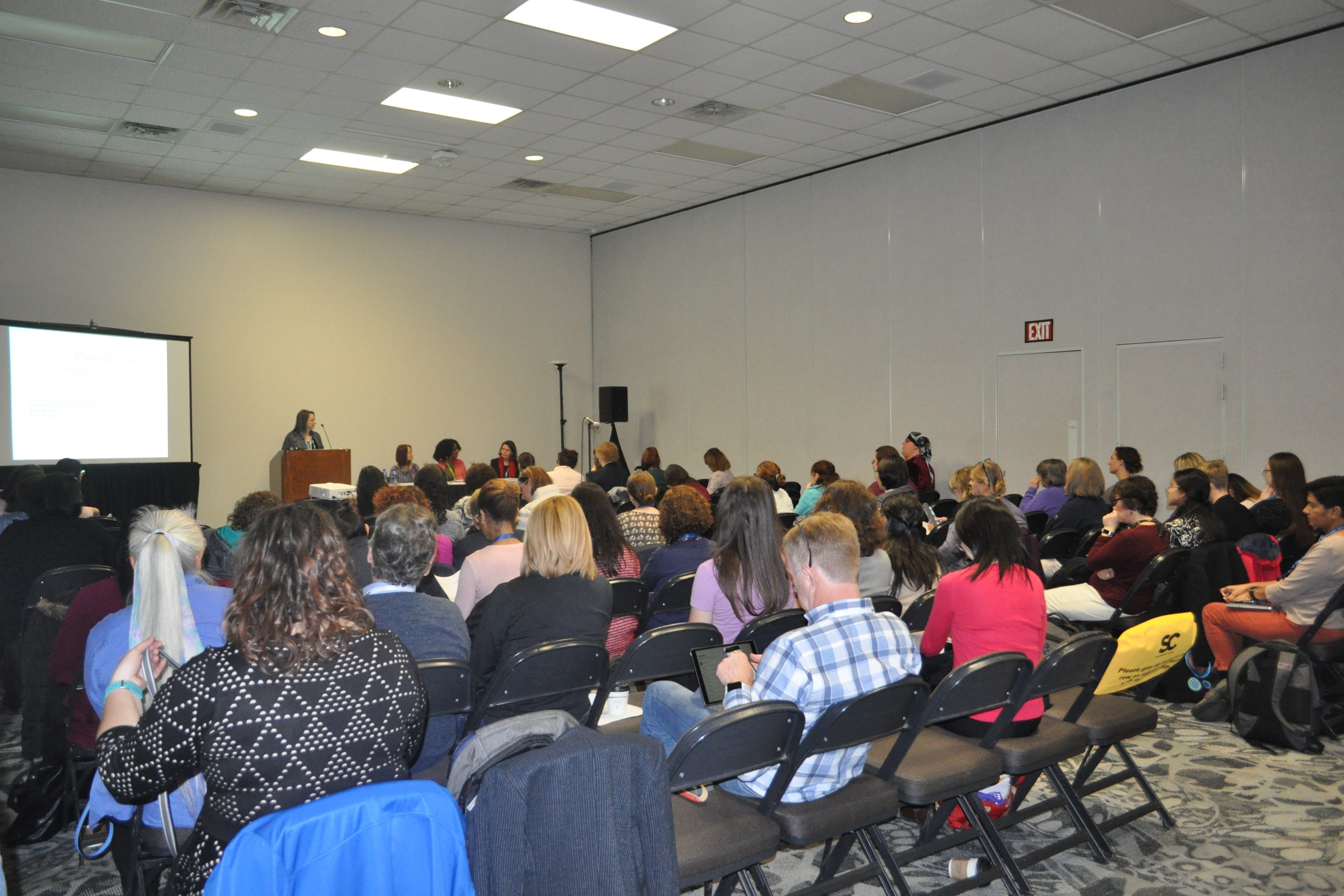A guest post by: Gail W. Pieper, Argonne National Lab
First published on November 12, 2018 at here
 Women are playing an ever-increasing role in high-performance computing (HPC). And the Women-in-HPC workshop, held at SC18 in November, paid tribute to this role – highlighting both the remarkable accomplishments achieved and the challenges remaining to thrive in the HPC community.
Women are playing an ever-increasing role in high-performance computing (HPC). And the Women-in-HPC workshop, held at SC18 in November, paid tribute to this role – highlighting both the remarkable accomplishments achieved and the challenges remaining to thrive in the HPC community.
“Stress in the HPC workplace can affect everyone. But women face special issues, including how to find good mentors, effectively respond to discrimination, and build workplace resilience,” said Misbah Mubarak, an assistant computer scientist in the Mathematics and Computer Science Division at Argonne National Laboratory and chair of the 2018 Women-in-HPC workshop.
This year’s workshop addressed these issues, and more, through a series of panels and presentations that attracted more than 115 participants. Mubarak attributed much of the success of the workshop to Toni Collis, director and founder of Women-in-HPC. “Her suggestions and mentoring throughout the workshop organization were instrumental in making this the most well-attended workshop in the series so far,” Mubarak said.
One highlight of the workshop was a keynote talk by Dr. Ruby Mendenhall, an associate professor in the Department of African American Studies at the University of Illinois at Urbana-Champaign. She described how she and her colleagues are using big data analytics techniques to recover the lost history of Black women. The monumental task involves searching through thousands of written texts from the past two and a half centuries. The information gleaned by exploiting advanced computing provides insights into what topics have been important to Black women during various historical times and how these women responded to problems such as property disputes and medical needs.
Another highlight was the panel sessions. The morning panel session examined the broader topic of diversity, whether gender or ethnicity, in the workplace. The panelists, who included representatives from Intel, the U.S. Department of Energy and Department of Defense and the University of Illinois, discussed how diversity can bring a fresh perspective to a problem and can improve productivity. They also presented best practices from their organizations on how to improve workplace diversity.
The afternoon panel session focused on building workplace resilience, a critical skill for women in HPC. The panel representatives, from IBM Research, the University of Sheffield, Texas Advanced Computing Center (TACC) and Leibniz Supercomputing Center, discussed their personal triggers that lead to stress at the workplace and how they manage such stress.
“A key part of this panel was its interactive component,” Mubarak said. “The audience members were invited to describe their own stress triggers, and the panelists then suggested ways to build resilience.”
The workshop also featured two different types of “talk” sessions. The “lightning talks”session gave 21 early- and mid-career women the opportunity to present their most recent results in a variety of areas involving high-performance computing. And the “Thriving at Work” session had six short presentations aimed at providing women with the skills to thrive in HPC, including making allies, responding to discrimination, finding a path for leadership and working remotely.
“A key takeaway from the workshop was the importance of incorporating strategies to promote an environment where all members of the HPC community are well represented,” said Mubarak. “This is a responsibility of both individuals and organizations. We need to ensure that women have the tools to succeed and that organizations provide a welcoming workplace to attract and retain these women.”
For more information about the workshop, see the website: https://women-in-hpc .org/whpc-sc18/.
About the author: Gail W. Pieper, Coordinating Writer/Editor, Argonne National Lab
[one_third valign=”top” animation=”none”]

[/one_third]
[two_third_last valign=”top” animation=”none”]
Gail Pieper’s current projects at Argonne include editing articles for journals and conference proceedings; writing press releases and other PR materials; and coordinating preparation of numerous proposals in areas ranging from climate modeling to nuclear reactor simulation.
Pieper received her Ph.D. in classical philology from the University of Illinois in 1969. She is the coauthor of several books, including two on automated reasoning.
[/two_third_last]
Blog Editor: Jesmin Jahan Tithi, Research Scientist, Intel.

